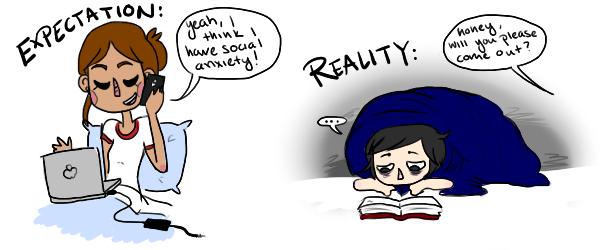Teens romanticize mental illness
Netflix is a great way to “binge-watch” whole seasons of a television show. Sometimes, it can be like visual superglue, trapping a person there for an entire weekend, when they think they should be hanging out with their friends. Instead, they’re stuck watching “Orange is the New Black”, or “American Horror Story” alone in the dark, with the glow of a computer screen.
This is all fine and dandy. But as soon as they return to civilization, someone giggles about it and says, “Oh my gosh, I’ve been in my room all weekend, I swear I have an antisocial disorder or something.”
Why do so many people believe that a simple choice such as staying in for the night, sitting alone at the library to study, or watching a season of Netflix qualifies them to say they have some kind of personality disorder?
Self-diagnosis can be a valid first step, if someone truly believes they have an illness. But taking the problems of other people and projecting them back onto yourself is different. When someone giggles about an issue that others really struggle with, it becomes disrespectful and insensitive.
This doesn’t just apply to antisocial disorders or introverted personalities. Those shrugging their shoulders about needing a ruler to make a chart because they’re “so OCD”, or having one bad day and saying they’re “depressed” are also guilty of misappropriating a disease.
People need to keep in mind that when they throw clinical phrasing around, it degrades the validity of that mental illness. In the same capacity that a decent person wouldn’t use the “R” word because it is offensive and derogatory, one should never call themselves “bipolar” for going through two moods in one day. Not to mention the ablest undertone that goes along with all of these flippant words and phrases.
However, it all fits under the same category, whether the intention is ablest or not.
A person wouldn’t say, “I need chemo” if they have a cold. A person wouldn’t say, “I’m a refugee” if their parents kicked them out for a day. They wouldn’t say, “I’m in poverty” if they still have a house, a bed, and a fridge full of food.
Maybe people say these things because assigning some particular disorder or problem that has a specific treatment absolves them of any responsibility of actually addressing the issue themselves.
Humanity would be better off if we all meant what we said. Confucius did exactly that by saying, “When words lose their meaning, people lose their freedom.”


